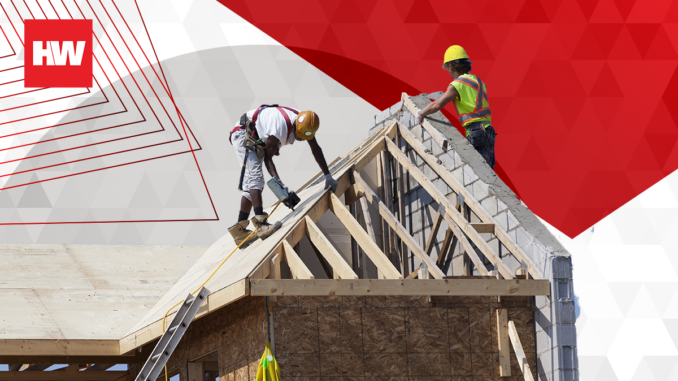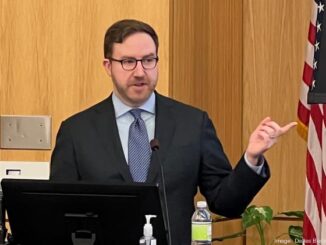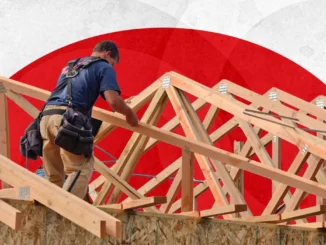
As mortgage rates rose to nearly 7% and builder sentiment dipped to painfully low levels in September, housing starts also declined, dropping 8.1% from August, to a seasonally adjusted annual rate of 1.564 million, according to a report released Wednesday by U.S. Census Bureau and the U.S. Department of Housing and Urban Development.
On a year over year basis, September’s annual housing start rate was down 7.7%. These declines come after a strong 12.2% month-over-month increase in August.
“Soaring interest rates took hold of the housing market in September, with rates climbing towards 7%,” Nicole Bachaud, an economist at Zillow, said in a statement. “The new construction industry was not blind to the impacts this will have on housing demand. As many buyers remain priced out of the market, home builder sentiment plunged far below expectations in September, and housing starts fell again likely in response to interest rates picking up as builders anticipate a further drop in demand.”
The yearly decreased pace in homebuilding is mostly attributable to a large decline in the single-family sector, which posted an 18.5% yearly decrease, compared to a 16.5% annual increase in the multifamily sector. Month over month, both sectors were down, with single family dropping 3.2% and multifamily falling 13.1%.
“The decline in single-family permits and starts should come as no surprise, as homebuilder confidence declined for the 10th consecutive month in October…”
“Builders are starting on construction on fewer single-family houses, but they’ve been breaking ground on more apartments and condominiums. Residential developers evidently are responding to the housing affordability crisis by constructing multifamily units, which tend to cost less than houses,” Holden Lewis, a home and mortgage expert at NerdWallet, said in a statement.
It appears that this trend will continue, as the multifamily building permits were issued at a seasonally adjusted annual rate of 644,000, up 8.2% month over month and 25.5% year over year. Meanwhile, single-family building permits were issued at a rate of 872,000, down 3.1% from August and 17.3% from a year ago. Overall, the number of building permits pulled came in at a rate of 1.564 million, up 1.4% from a month prior, but down 3.2% from September 2021.
“The decline in single-family permits and starts should come as no surprise, as homebuilder confidence declined for the 10th consecutive month in October, reaching its lowest level since August 2012, excluding spring of 2020,” Odeta Kushi, First American’s deputy chief economist, said in a statement.
However, as the number of starts and permits decreases, builders have more time and man power to devote to existing projects, driving the number of housing completions up. Overall, completions were up 6.1% from August and 15.7% year over year to a seasonally adjusted annual rate of 1.427 million.
There are currently 910,000 multifamily units under construction, the highest level since the mid-1970s, according to the Census Bureau. Overall, there are 1.71 million housing units under construction, an all-time record.
Regionally, housing starts were down month over month in the Northeast (-12.5%), Midwest (-2.7%) and South (-13.7%), but they were up 4.5% in the West. On a yearly basis, housing starts were down in the Midwest (-10.8%), South (-8.8%) and West (-11.2%), but up 15.7% in the Northeast.
Despite decreases in housing starts and permits, some market observers still feel there are reasons to remain optimistic.
“There is a clear long-term need for more new housing after a decade-plus of lackluster homebuilding activity insufficient to keep up with a growing population, and a prolonged pullback in building activity now would represent a missed opportunity to address those long-term needs,” Neda Navab, Compass’ president of national brokerage operations. “Finding the right balance between prudent, short-term caution and obvious long-term need won’t be easy for builders, but will be necessary to ensure the ongoing supply/demand imbalance we’re experiencing today can ease somewhat tomorrow.”



